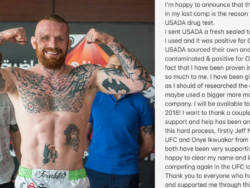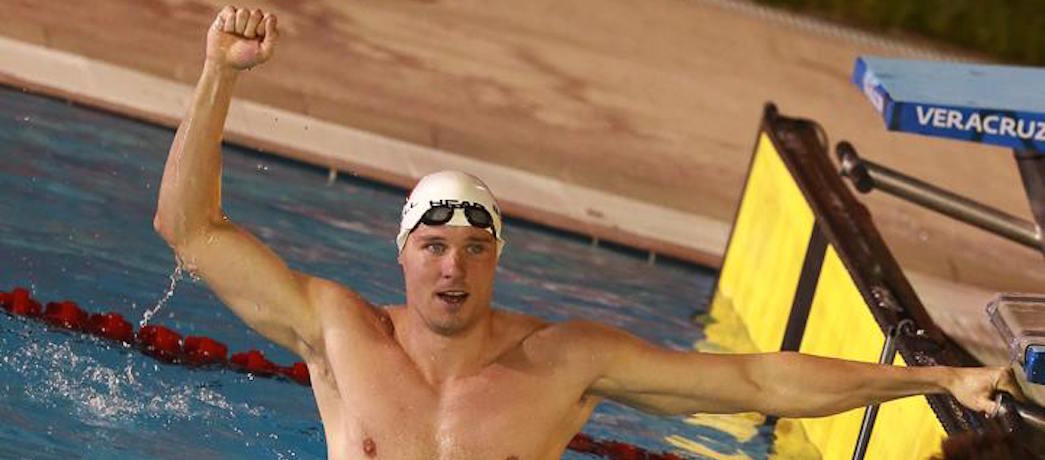The trouble with Ostarine: Jimmy Wallhead’s
16th March 2018
Features


The eerie light of the full moon shines through my window blinds as I lay my exhausted body down to sleep. I wonder if they will come to roust me awake again before the sun rises, come for my blood and demand me to do their irrefutable bidding. The banging on my door that heralds the arrival of these strangers of whom I can’t refuse entry, has left me conditioned to sleep lightly and to assume that any early morning noise is them.
I am not alone is suffering from this visiting affliction. It’s the price that we must pay to compete at the top level of international Olympic sports. We submit ourselves to the random, out-of-competition drug testing of our blood and urine in the naive hope that we will be able to compete in a sport that is fair, and doping free.
The privilege of representing your country comes with great responsibility. In addition to the constant vigilance over the legal status of medications and supplements that are consumed (with many common ones being banned), an online database must be carefully kept up to date with our whereabouts, specifying where we can be found for one hour in each 24 as the spontaneity of life happens and our plans change from day to day.
For most of us, the hours of the early morning are our safest bet at predicting where we will be at that set time; at home in bed. However constant amends must be made for late nights out and expeditions that start in the early in the morning as the stakes are high. If the drug testers come looking for you and you are not at the stated location for the specified hour, and this happens three times in 18 months, it is considered a positive doping test result, requiring a minimum of a two-year ban.
I have been subjected to constant random out of competition drug testing since 2001 as a result of being ranked among the World’s top ten consistently for 14 years. Being randomly drug tested is both impersonal and uncomfortably intimate at the same time.
Once, I awoke horrified, into adrenaline fuelled survival mode instantly at the sight of a shadowy figure standing over over my girlfriend and I as we lay asleep early one morning. On that occasion, my roommate had answered the door and one creepy tester crept rudely into my room refusing to let me leave his sight, even to dress, horrifying my then girlfriend as he inquisitively stared around the room as I turned on the lamp. I felt violated!
Drug testers are not supposed to get to know you, nor accept food or drink and must keep eyes on you at all times in order to make sure you don’t consume any sort of masking agent before providing the necessary samples. Juxtaposed with how impersonal the random drug testers are is the fact that the tester collecting the sample must actually see the urine sample leave your naked body. That is easier to get used to than the needles in the veins that go with providing a blood sample.
We willingly submit to and endure the random, out-of-competition drug testing program’s many inconveniences because we sincerely want to compete in a sport that’s free from the cheaters who would steal our hard earned fruits of labour. However it’s hard not to be cynical, especially for those fourth and ninth place finishers who have been robbed; and wonder if it’s really even worth it when updating our whereabouts or providing our next sample. Cynicism is due to the common knowledge that Lance Amstrong, the reputed “most tested athlete ever” and Marion Jones, the winner of 12 Olympic and World Championship medals, were doping for years yet never caught. And when doping athletes are actually caught but receive significantly reduced bans for co-operating or are deemed not responsible for the circumstances surrounding their doping and are handed down warnings instead, thus continuing to rob us.
• This article originally appeared in George Bovell’s regular column for the Trinidad & Tobago Guardian, ‘Reflections off the water’, on 7 April 2015. You can access the original article by clicking here.
If an electoral candidate gave you a watch worth £30 ahead of an election in...
• Valerii Ozarenko, Head of Tournament Development at the Setka Cup, explains how the platform...
The Athletics Integrity Unit (AIU) of World Athletics has recently announced that two athletes who...